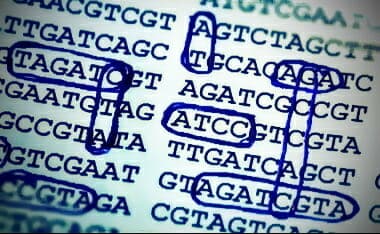UPDATED w/Dawkins & Greg Bahnsen at the end.
“‘You’, your joys and your sorrows, your memories and ambitions, your sense of personal identity and free will, are in fact no more than the behavior of a vast assembly of nerve cells and their associated molecules.”
Francis Crick, The Astonishing Hypothesis: The Scientific Search for the Soul (New York, NY: Schribner, 1995), 3.
In this short montage I start out with Lewis Wolpert on the “Unthinkable” program with Justin Brierley. According to evolution, love is reducible entirely to natural causes. I add a response I love from a cyber friend (Ken Ammi) via his debate in March 2010 with Michael Sizer (see my upload of just this part). And of course I add Provine for good measure.
- …love better coheres within the Christian, mind-first, conception of reality—where love has role, meaning and place in a universe created by a God who is love. (THE GOSPEL COALITION)
Here is a short snippet from John Lennox’s book, “Determined to Believe? The Sovereignty of God, Freedom, Faith, and Human Responsibility“
Free will and love
Another capacity that would be impossible without free will is the capacity to love. The existentialist writer Jean-Paul Sartre captured this idea well:
The man who wants to be loved does not desire the enslavement of the beloved. He is not bent on becoming the object of passion which flows forth mechanically. He does not want to possess an automaton, and if we want to humiliate him, we need try to only persuade him that the beloved’s passion is the result of a psychological determinism. The lover will then feel that both his love and his being are cheapened… If the beloved is transformed into an automaton, the lover finds himself alone.7
The endowment of men and women with free will inevitably implies the possibility that they might use that free will to choose evil, and to reject love, even the love of God. Hence we must consider some necessary implications of human free will for the structure of nature. If the free will and free choice that God gave to human beings were intended to be genuine, that very fact necessitated that nature should possess a certain degree of autonomy.
C.S. Lewis puts it this way:
People often talk as if nothing were easier than for two naked minds to “meet” or to become aware of each other. But I see no possibility of their doing so except in a common medium which forms their “external world” or environment… What we need for human society is exactly what we have – a neutral something, neither you nor I, which we can both manipulate so as to make signs to each other. I can talk to you because we can both set up sound waves in the common air between us.8
Lewis then points out that this and other neutral fields – matter, in other words – must have a certain fixed nature, a certain autonomy as Lewis calls it. Suppose the contrary were the case. Imagine, for example, that the world was structured in such a way that a beam of wood remained hard and strong when used in the construction of a house, but it became as soft as grass when I hit my neighbour with it. Or if the air refused to carry lies and insults. Indeed, says Lewis:
If the principle were carried to its logical conclusion evil thoughts would be impossible, for the cerebral matter which we use in our thinking would refuse its task when we attempted to frame them. All matter in the neighbourhood of a wicked man would be liable to undergo unpredictable alterations.9
The result would be, of course, that real freedom of human will and choice would be negated.
Nature, then, must have a certain autonomy, in order that there can be a society of beings with free will, able to make real moral decisions for good or evil, and to carry them out in practice. The potential of evil thought and act to produce evil effects cannot be annulled without simultaneously removing the necessary condition for free will to function. This is a moral universe.
So far, so good, but what lies behind all of this? How does this universe come to be a moral universe; and if we are to be free within it, what are the basic conditions for achieving that freedom?
7 J-P. Sartre, Being and Nothingness, New York, Pocket Books, 1984, p. 478.
8 C.S. Lewis, The Problem of Pain, London, HarperCollins, 2002, p. 18.
9 Ibib., p. 21.
Naturalism is self-defeating Richard Dawkins vs. Greg Bahnsen


